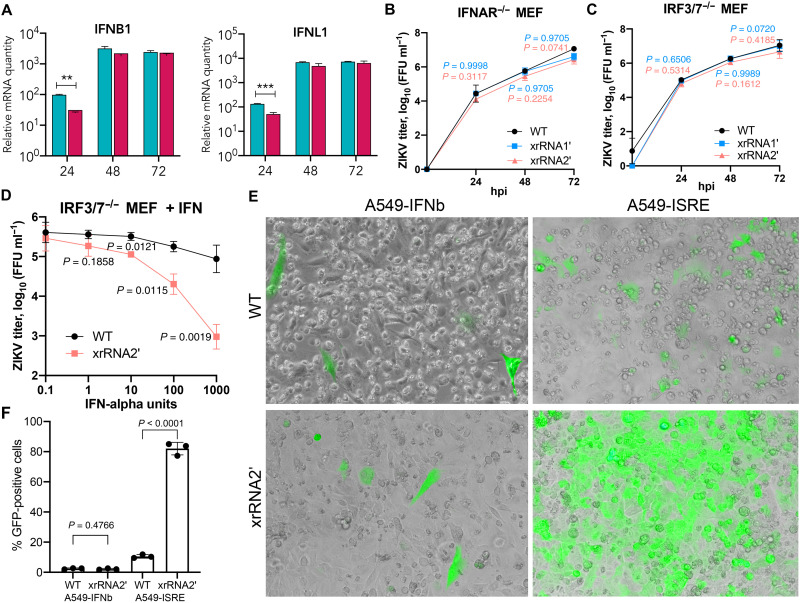Fig. 6. ZIKV sfRNA inhibits IFN signaling but not PRR signaling and IFN production.
(A) Expression of IFNs in human placental BeWo cells infected with WT (cyan) and sfRNA-deficient (magenta) ZIKV. Cells were infected at MOI = 1, and total RNA was isolated at the indicated time points and used for qRT-PCR. Relative mRNA quantity was determined using the ΔΔCt method relative to mock with normalization to glyceraldehyde-3-phosphate dehydrogenase (GAPDH). (B and C) Replication of WT and sfRNA-deficient ZIKV mutants in IFNAR−/− and IRF3/7−/− MEF. Cells were infected at MOI = 0.1. (D) Effect of IFN treatment on the replication of WT and sfRNA-deficient ZIKV in IRF3/7−/− MEF incapable of endogenous IFN production. Cells were pretreated with IFN-α, infected at MOI = 1, and titers were determined at 48 hpi. (E) Effect of ZIKV sfRNA on the activity of IFNb and ISRE promoters. IFNb-GFP and ISRE-GFP reporter A549 cells were infected with WT or sfRNA-deficient ZIKV at MOI = 0.1, and GFP fluorescence was documented at 48 hpi. The images are merged bright-field and epifluorescent microphotographs of live cells and are representative of three experiments that showed similar results. (F) Quantification of GFP-positive cells in (E). Values in (A) to (D) and (F) are the means of three biological replicates ± SD. Statistical analysis was performed using one-way ANOVA with Dunnett’s correction (A to D) and Student’s t test (F). **P < 0.01, ***P < 0.001.

